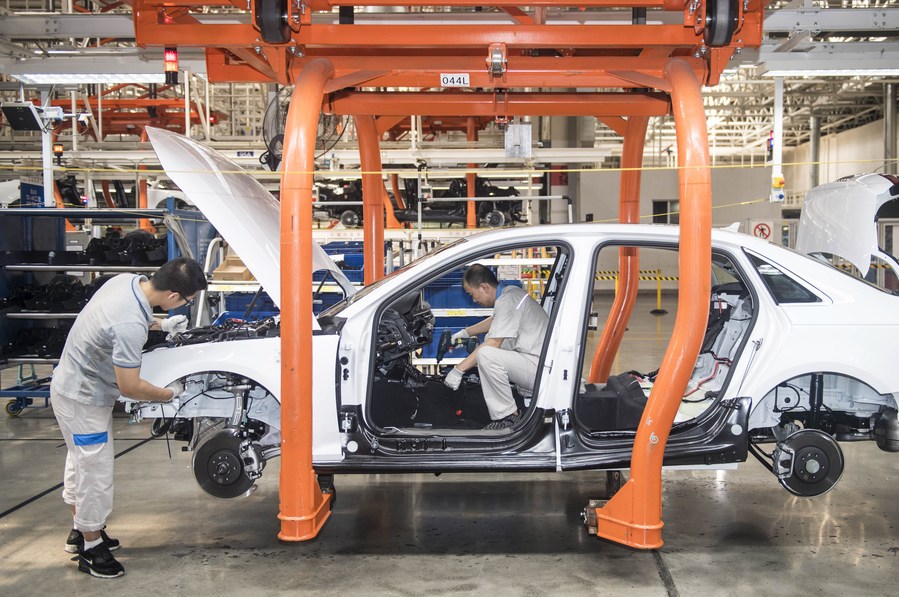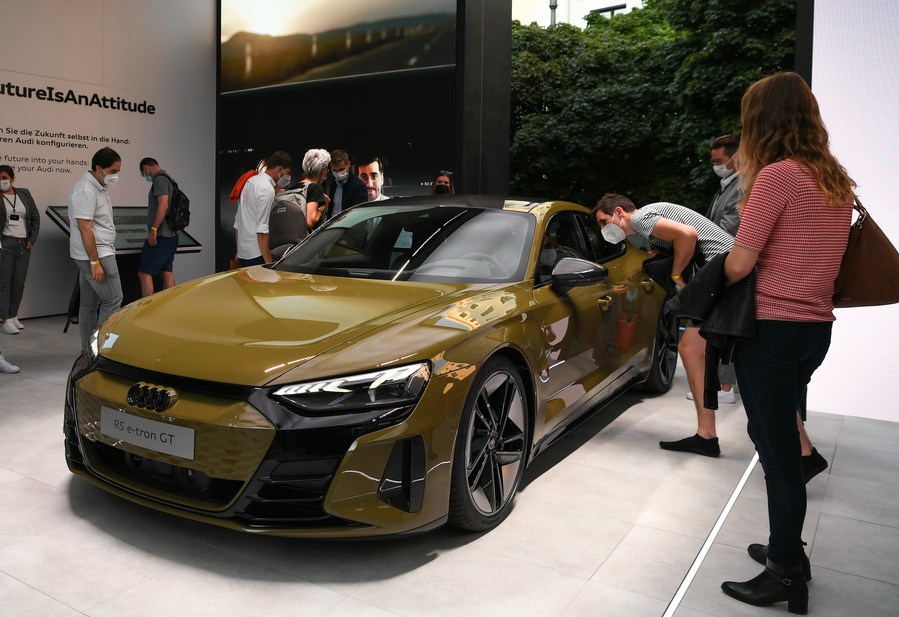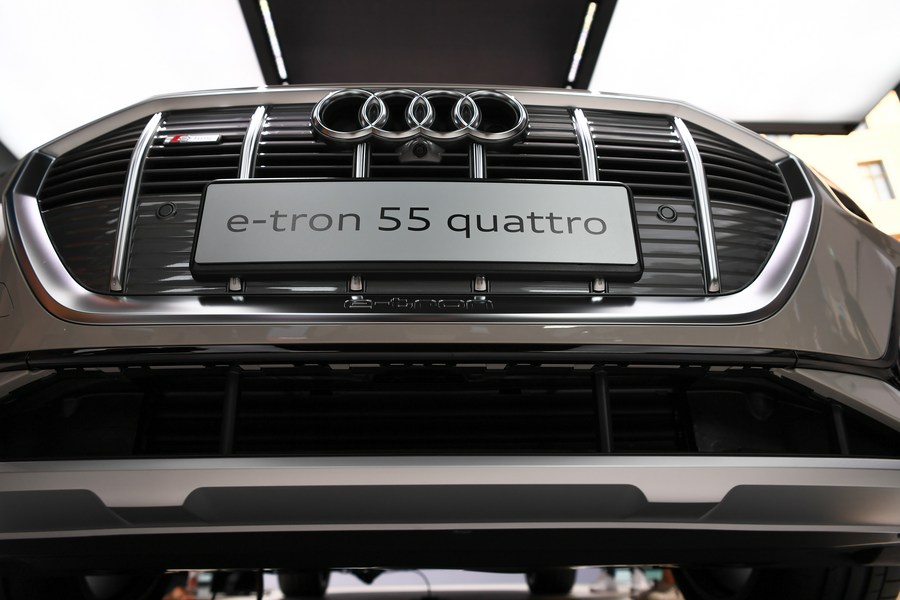China remains Germany's most important market for combustion engine cars: Destatis

Workers assemble a car at a workshop of FAW-Volkswagen Automobile Co., Ltd. in Changchun, northeast China's Jilin Province, July 9, 2019. (Xinhua/Xu Chang)
China market is remarkably important given its share in the sales of German combustion engine cars in 2022.
BERLIN, March 23 (Xinhua) -- China remained the most important market for German combustion engine cars in terms of volume in 2022 with a share of 14 percent, the Federal Statistical Office (Destatis) said on Thursday.
Germany's total exports of combustion engine vehicles in 2022 were at the previous year's level with 1.48 million units worth 55.5 billion euros (60.4 billion U.S. dollars).
"Cars with a traditional combustion engine still accounted for the majority of German car exports and imports in 2022, although foreign trade with electric vehicles is growing in importance," Destatis said in a statement.

An Audi R5 e-tron GT is on display at the Audi outdoor booth during the International Motor Show Germany (IAA Mobility) in Munich, Germany, Sept. 8, 2021. (Xinhua/Lu Yang)
Germany last year exported around 500,000 electric cars worth 24.2 billion euros, an increase of 65.2 percent year-on-year, according to Destatis. The most important customer for German electric cars was the United Kingdom, followed by the United States.
"The German automotive industry still predominantly produces cars with classic combustion engines in this country, but the production of electric cars is increasing significantly," Destatis said.
In the first three quarters of 2022, production of electric cars increased by 66.2 percent year-on-year.

An Audi e-tron 55 quattro is on display at the Audi outdoor booth during the International Motor Show Germany (IAA Mobility) in Munich, Germany, Sept. 8, 2021. (Xinhua/Lu Yang)
The German Association of the Automotive Industry (VDA) expects total sales of electric cars, including battery electric vehicles (BEV) and plug-in hybrid electric vehicles (PHEV), in Europe's largest economy this year to decrease by 8 percent year-on-year. The share of electric cars in total car registrations is expected to fall by 3 percentage points to 28 percent.
"We expect that the reduction in subsidies for purely battery- electric cars and the cancellation of subsidies for plug-in hybrids will continue to have a negative impact on the ramp-up of electromobility," VDA President Hildegard Mueller said in a statement.

